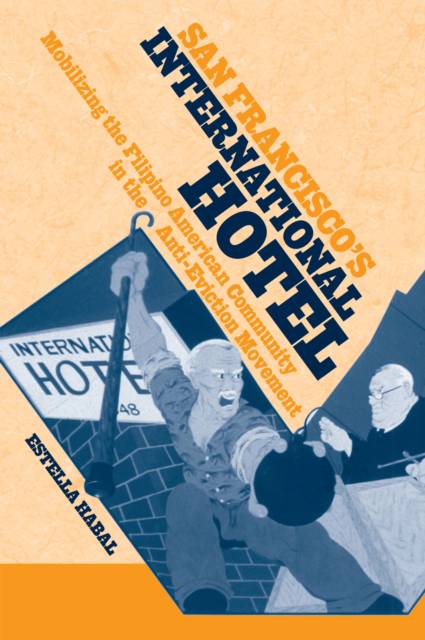
Bedankt voor het vertrouwen het afgelopen jaar! Om jou te bedanken bieden we GRATIS verzending (in België) aan op alles gedurende de hele maand januari.
- Afhalen na 1 uur in een winkel met voorraad
- In januari gratis thuislevering in België
- Ruim aanbod met 7 miljoen producten
Bedankt voor het vertrouwen het afgelopen jaar! Om jou te bedanken bieden we GRATIS verzending (in België) aan op alles gedurende de hele maand januari.
- Afhalen na 1 uur in een winkel met voorraad
- In januari gratis thuislevering in België
- Ruim aanbod met 7 miljoen producten
Zoeken
San Francisco's International Hotel
Mobilizing the Filipino American Community in the Anti-Eviction Movement
Estella Habal
€ 38,45
+ 76 punten
Omschrijving
The struggle to save the International Hotel and prevent the eviction of its elderly residents became a focal point in the creation of the contemporary Asian American movement, especially among Filipinos. Like other minorities who were looking for positive models in their past to build an identity movement, Filipino youth found their roots in the stories and lives of the manongs (respected elders), and the anti-eviction movement became a key site for the formation of a distinct Filipino American consciousness. Estella Habal, a student activist during the anti-eviction protests, relates this history within the context of the broader left politics of the era, the urban housing movement, and San Francisco city politics. Ultimately, the hotel was razed, but a new one now occupies the site and commemorates the residents and activists who fought for low-income housing for the elderly and their right to remain in their own community.
Specificaties
Betrokkenen
- Auteur(s):
- Uitgeverij:
Inhoud
- Aantal bladzijden:
- 256
- Taal:
- Engels
- Reeks:
Eigenschappen
- Productcode (EAN):
- 9781592134465
- Verschijningsdatum:
- 1/02/2008
- Uitvoering:
- Paperback
- Formaat:
- Trade paperback (VS)
- Afmetingen:
- 159 mm x 227 mm
- Gewicht:
- 353 g

Alleen bij Standaard Boekhandel
+ 76 punten op je klantenkaart van Standaard Boekhandel
Beoordelingen
We publiceren alleen reviews die voldoen aan de voorwaarden voor reviews. Bekijk onze voorwaarden voor reviews.









